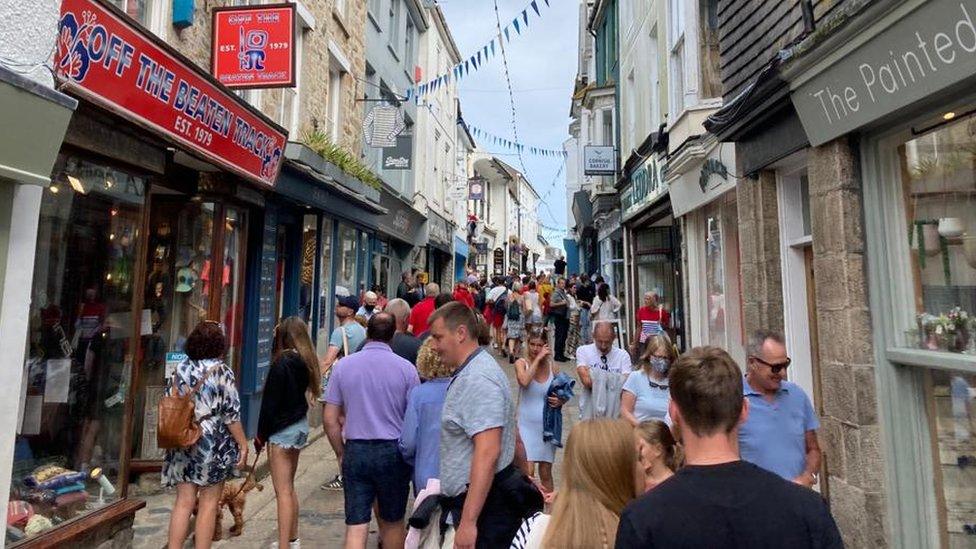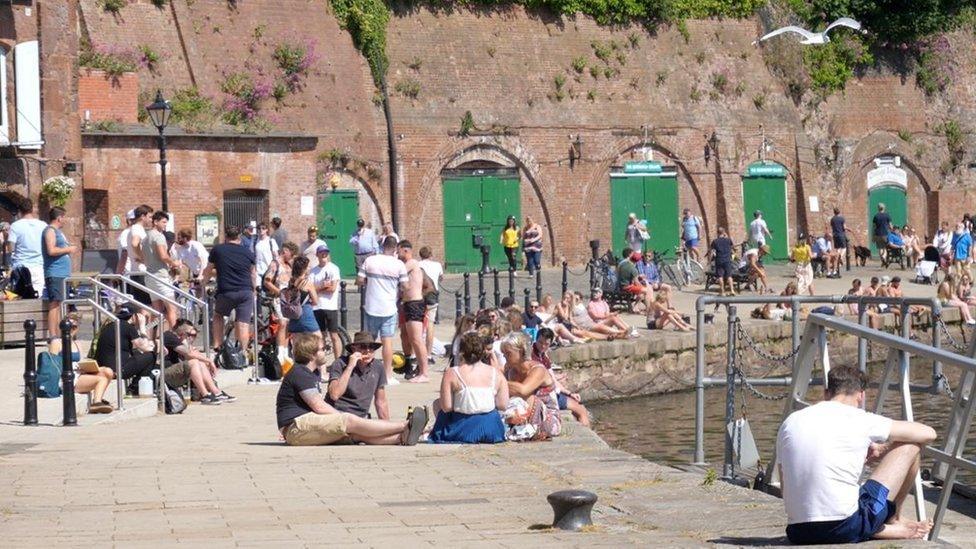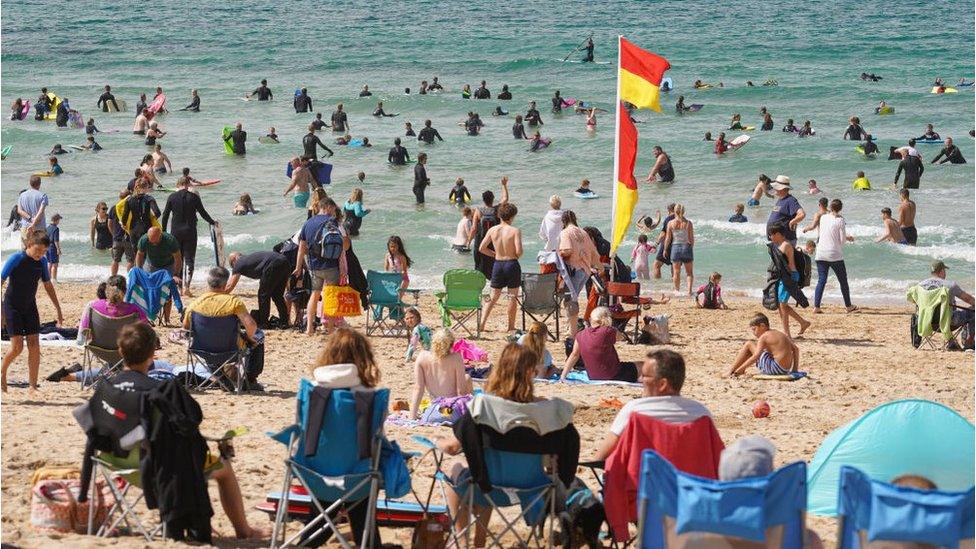Enhanced Covid response in Devon and Cornwall ends
- Published

When the measures were introduced in August Cornwall had the highest Covid rate in England
Special measures to tackle a spike of Covid-19 cases in Devon and Cornwall have come to an end.
The extra support was put in place by the Department of Health at the end of August and included efforts to maximise vaccine uptake and testing capacity.
The enhanced response area lasted for five weeks and ended on Friday.
Dr Lincoln Sargeant, the director of public health for Torbay, said the number of cases had reduced and the region was no longer an "outlier".
'Middle of the pack'
At the time the measures were introduced, Cornwall and the Isles of Scilly had the highest Covid rate in England with 829 cases per 100,000 people in the seven days to 22 August.
Seven council areas in Devon were also in the top 10 local authorities with the highest rates.
Other measures included genome sequencing and masks in secondary schools.
Dr Sargeant said: "Bottom line is the numbers have come down."
He said it was "probably right" that the special measures ended "in the sense that we are no longer an outlier, in fact we are very much in the middle of the pack and to the lower end of rates across the country now".
In Cornwall and the Isles of Scilly there were 357 cases per 100,000 in the seven days to 26 September, while the case rate in Devon council areas ranged from 196 to 351 per 100,000.
Dr Sargeant said the combination of awareness that the enhanced response area gave and some additional messaging had helped to reduce cases, but added actions that "really made a difference" were things they were already doing including working closely with the hospitality and tourism sector and the vaccination programme.
Director of public health for Cornwall and the Isles of Scilly, Rachel Wigglesworth, said the measures had "proved useful in driving our case numbers down".
She added the fight against the virus was "most definitely not over" and urged everyone to get vaccinated and remain cautious.

Follow BBC News South West on Twitter, external, Facebook, external and Instagram, external. Send your story ideas to spotlight@bbc.co.uk, external.
Related topics
- Published23 September 2021

- Published31 August 2021

- Published27 August 2021
